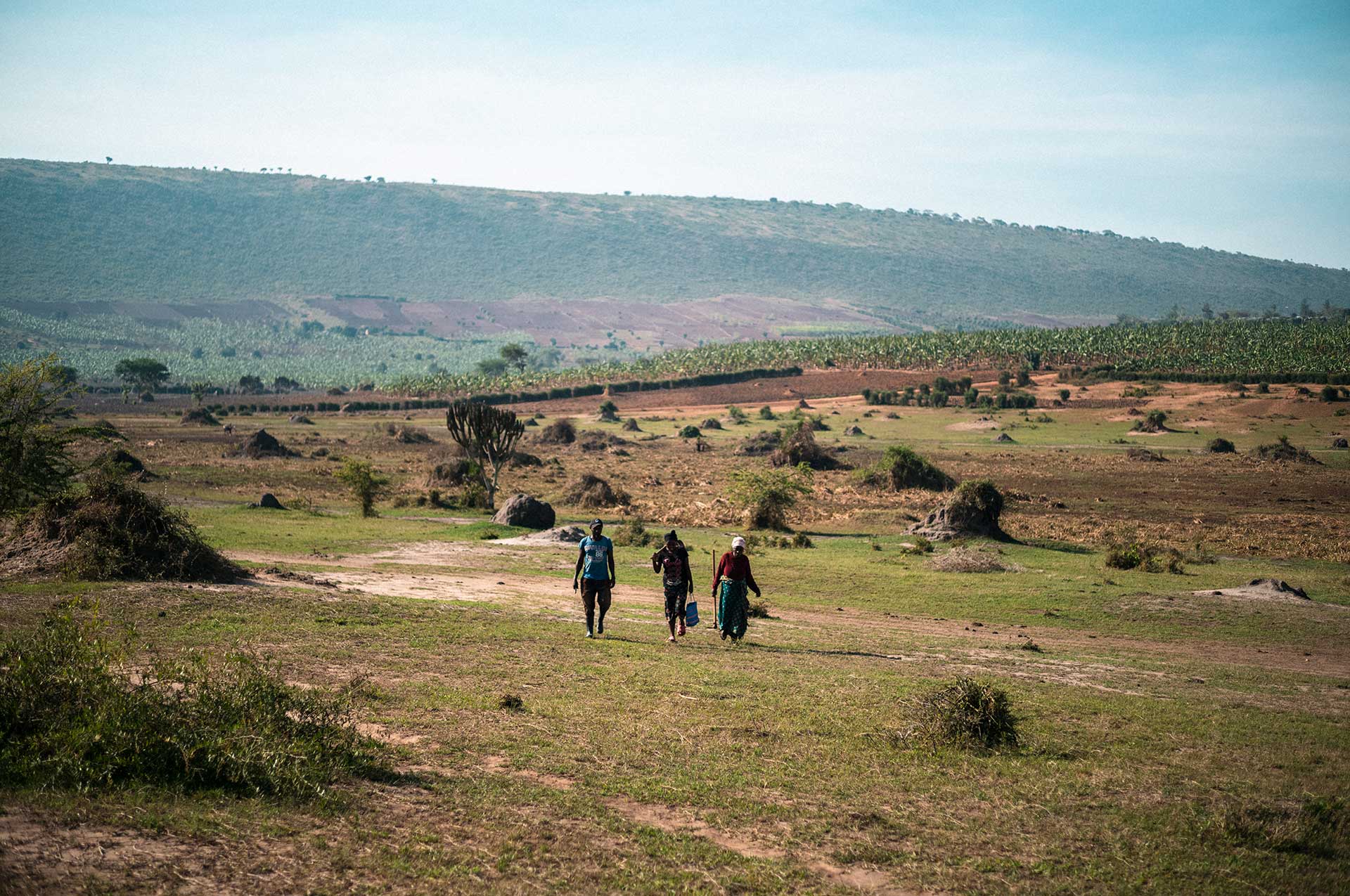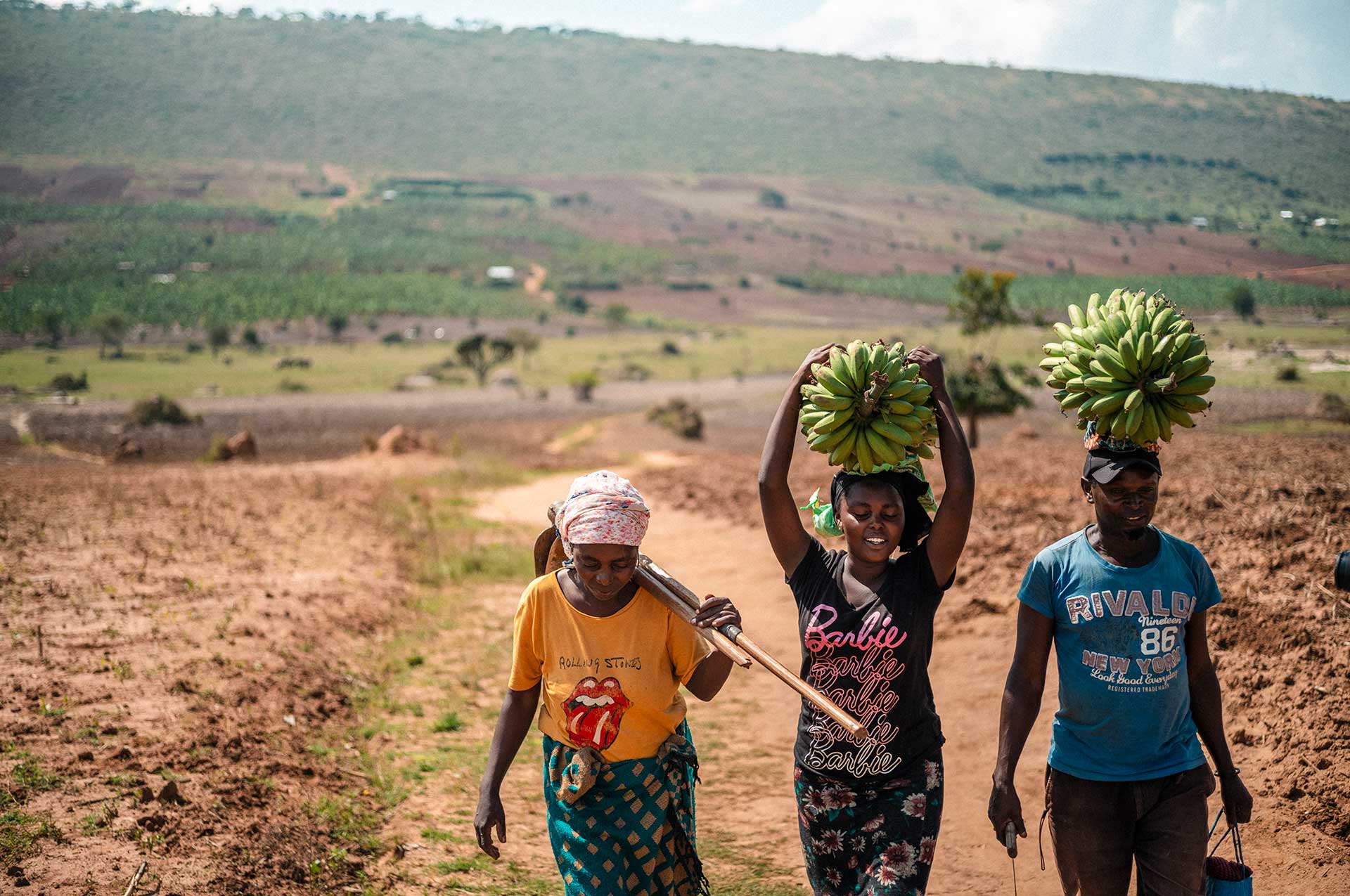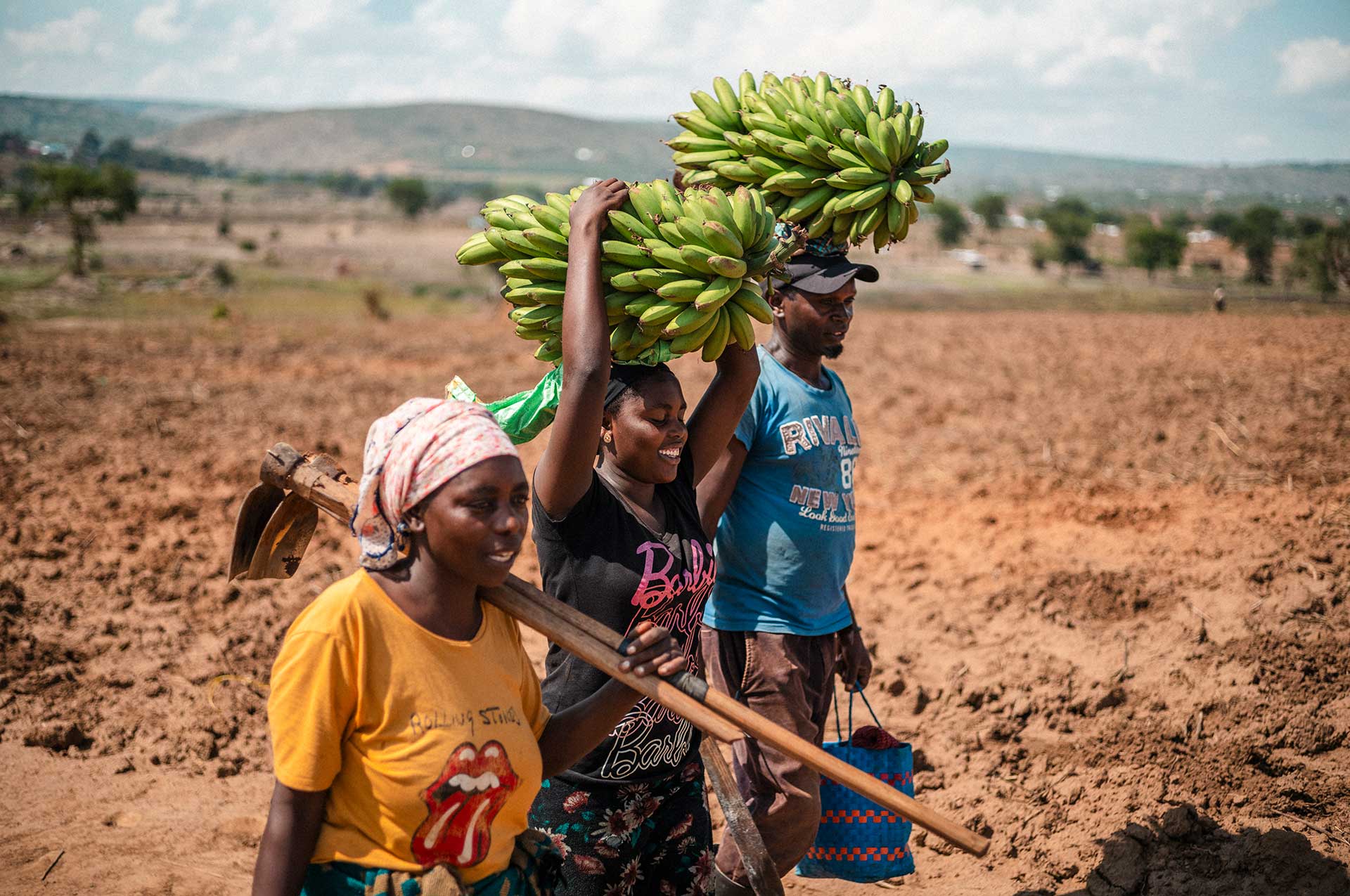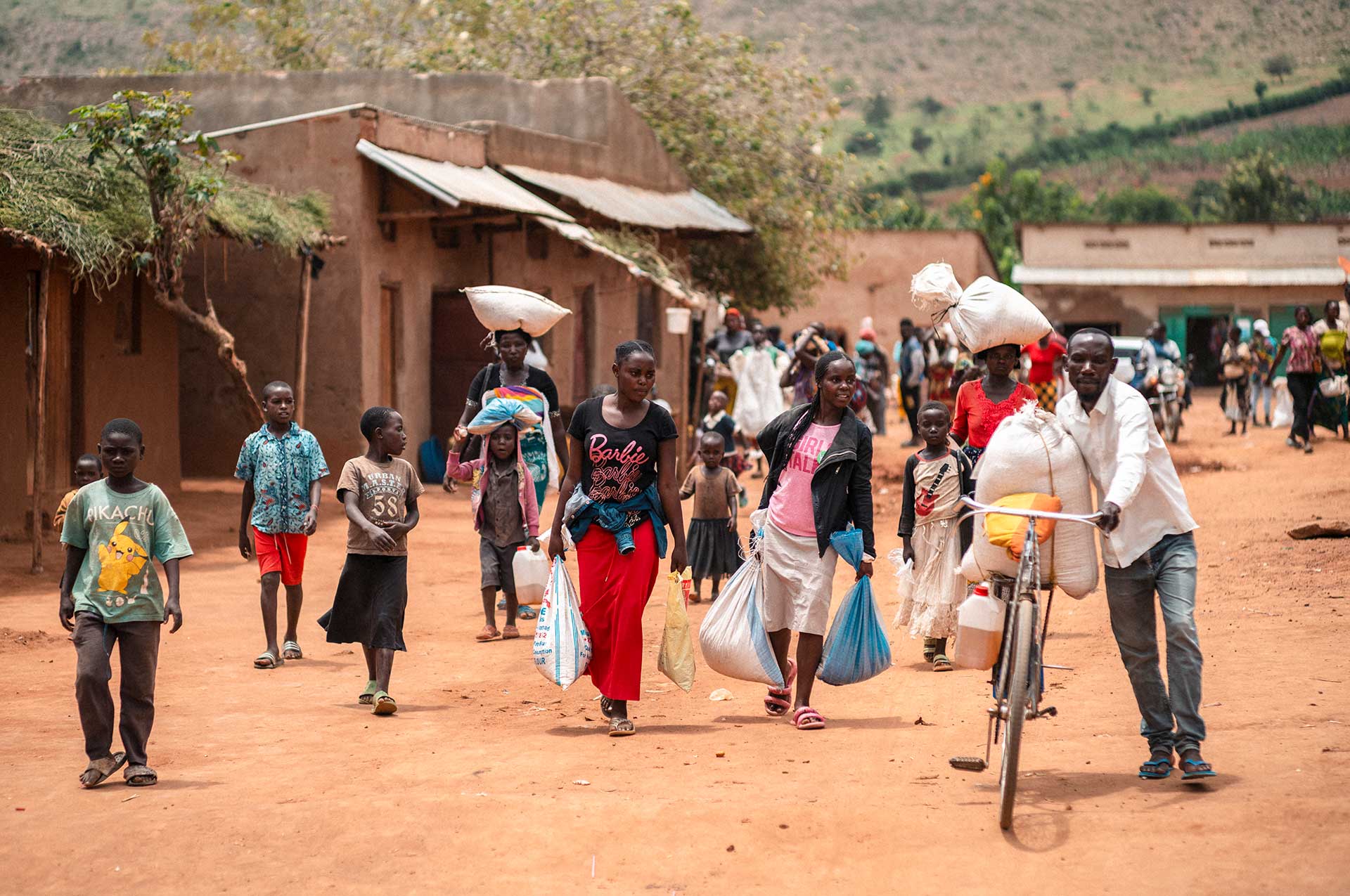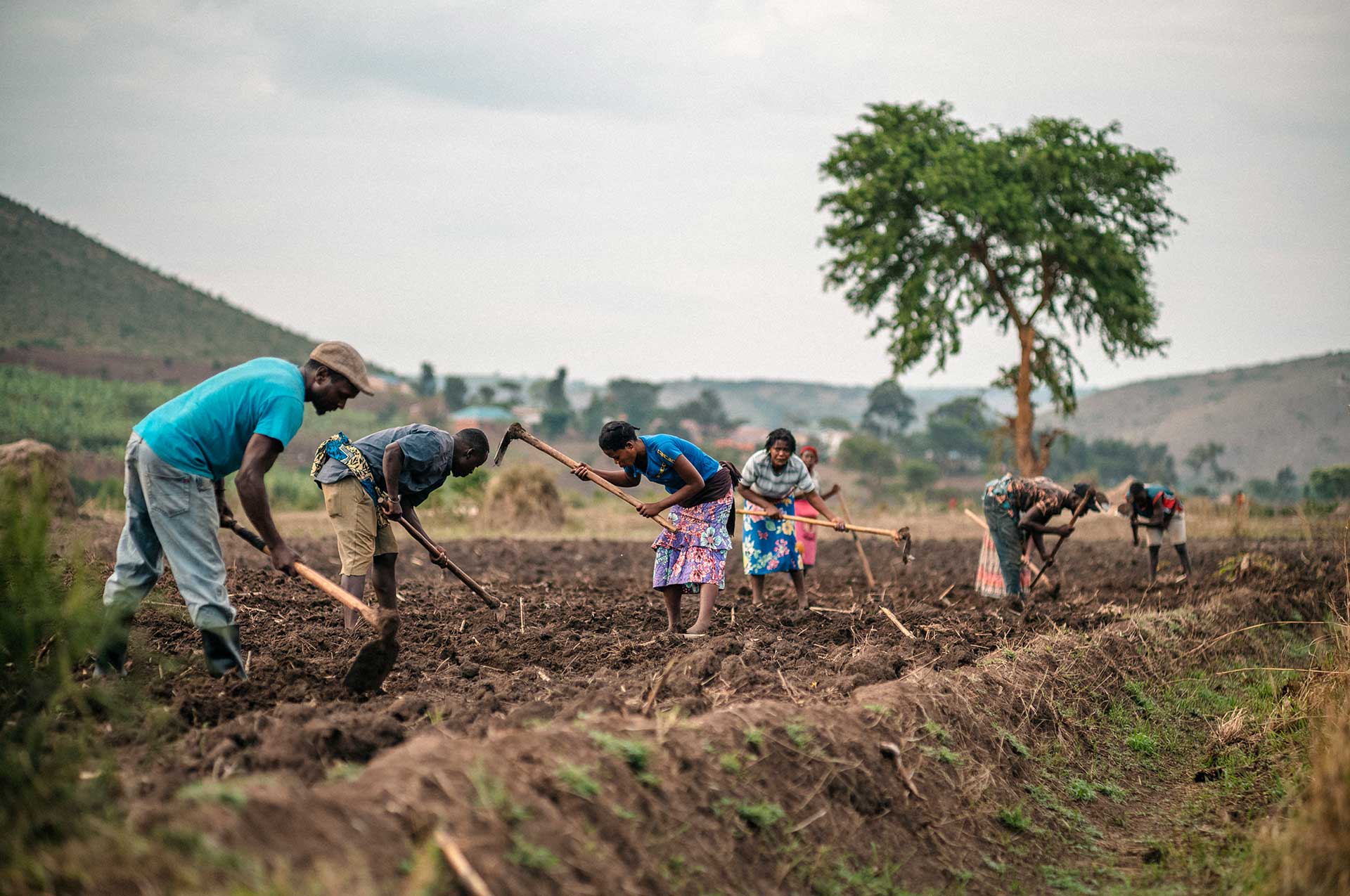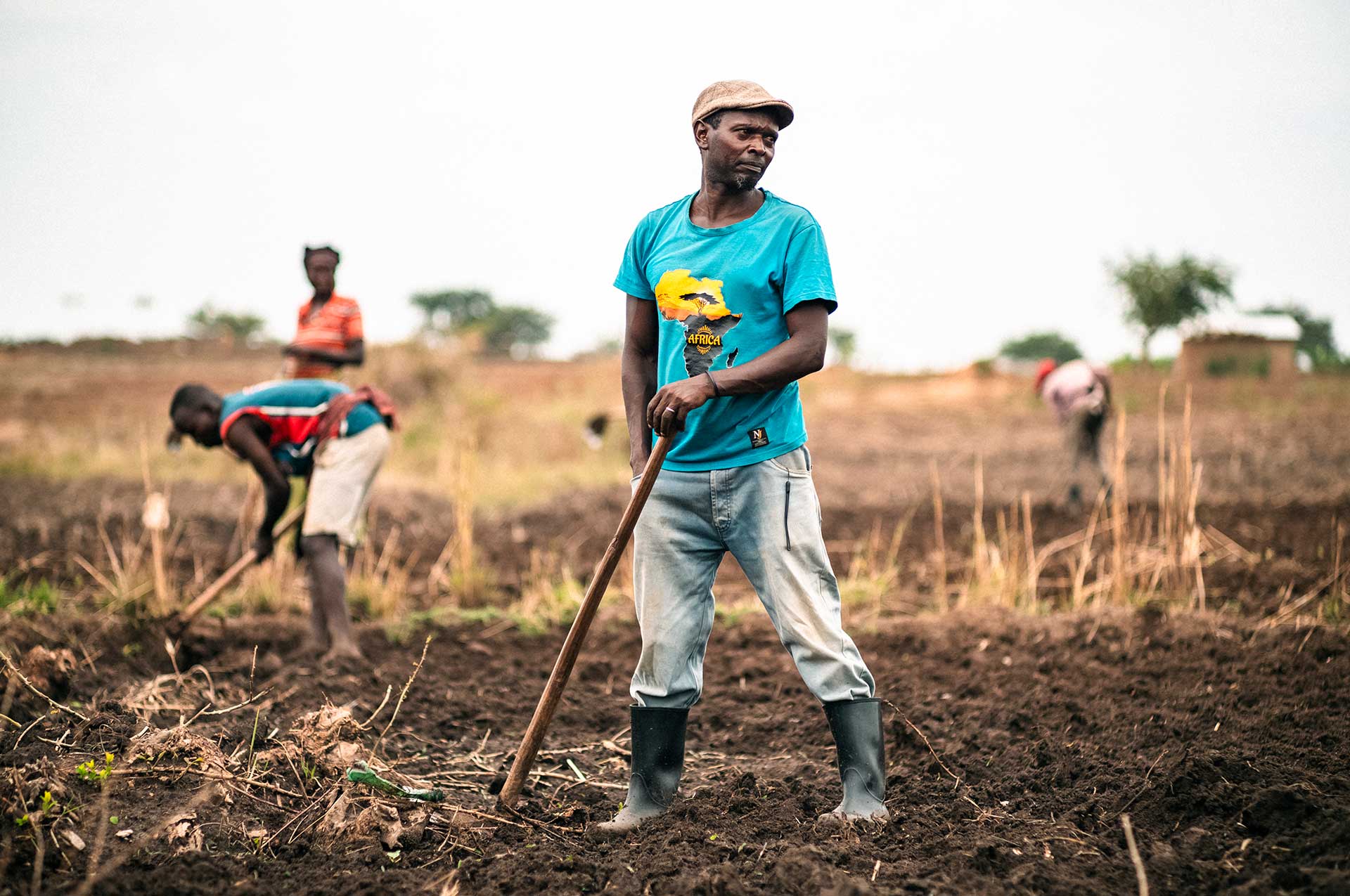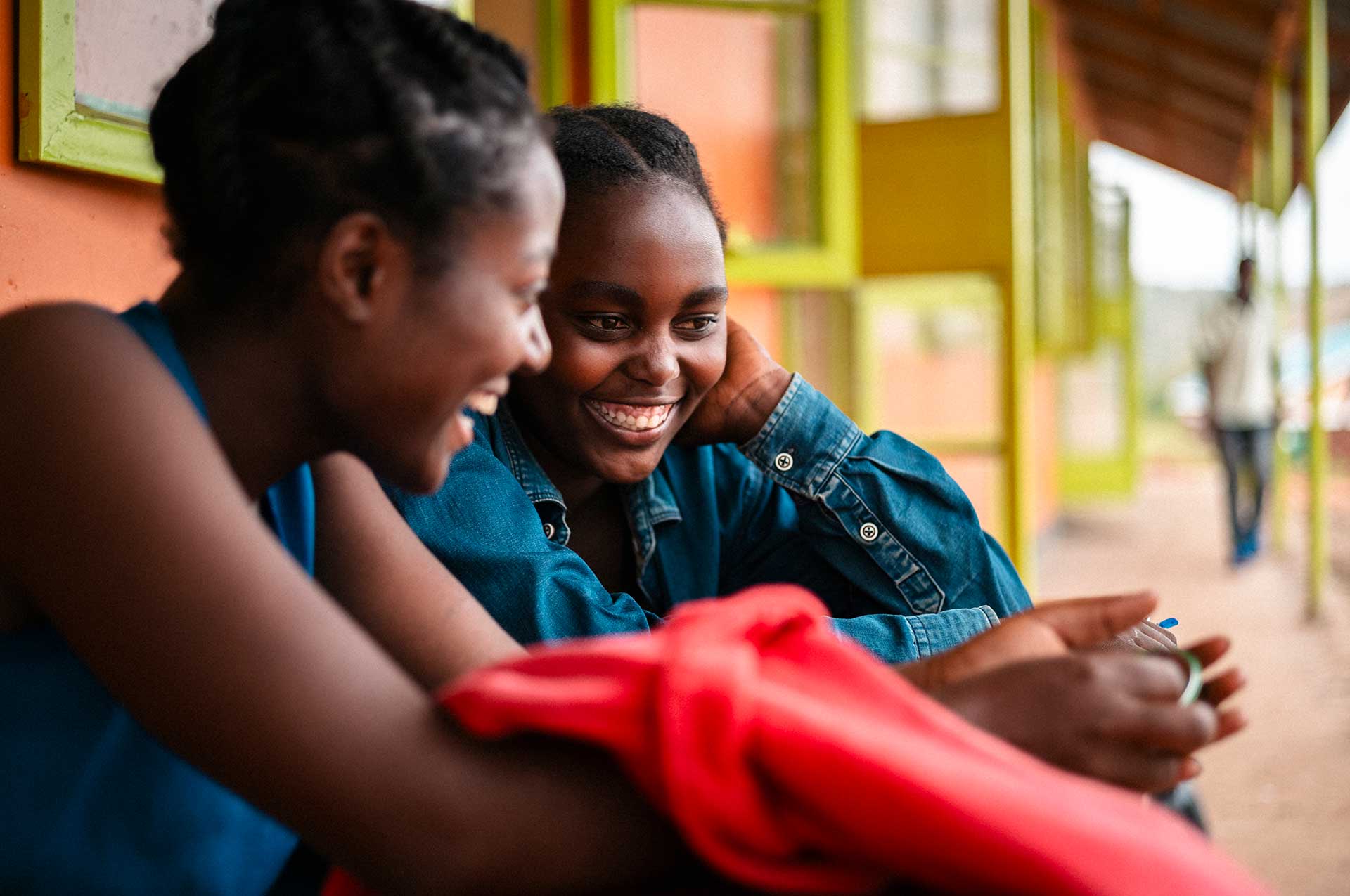In an unfamiliar land – Dorcas, 17, is adjusting to a new life as a refugee in Uganda and hopes to stay in school
17-year-old Dorcas fled her home country, the Democratic Republic of the Congo, in the middle of a school day. In Uganda, Dorcas is struggling to stay in school and get enough food. FCA helps young refugees build a better future for themselves.
Text: Elisa Rimaila
Photos: Antti Yrjönen
THE COOLEST hours of the morning are best suited for field work. A heavy wooden-handled hoe kicks up dust from the soil layer and Dorcas Uwamahoro, 17, scatters a few brown beans onto the ground. If the rains come on time and are sufficient, Dorcas’ family will have a bean harvest from their own field on their plates in three months.
The sun is already high in the sky, although the birds on the hills surrounding the field are just beginning their concert. Dorcas finds the last beans in her pockets, throws them on the ground and uses her hoe to pull a thin layer of soil over the top.
“Life was good at home in the DRC”, she says.
“Now, I’m just constantly hungry and I have to work a lot with my family members to get food. My clothes get dirty, and I feel dirty too”, Dorcas says.
Dorcas arrived in Uganda as a refugee in spring 2022, shortly after the conflict in her home region in the eastern part of the Democratic Republic of the Congo (DRC) escalated again.
They escaped in the middle of a school day.
“We started hearing gunshots around the school. My brother and I fled home, but already at the door we noticed that our parents and the rest of our siblings were no longer there. We flung the books out of our hands and continued running”, Dorcas recalls.
The conflict in the DRC began long before Dorcas was even born. Over three brutal decades, more than five million people have lost their lives. The DRC is a huge country, and the conflict in its eastern part is one of the most forgotten in the world: It only makes headlines when something bigger happens. One such moment was in March 2022, when armed groups became active once again and hundreds of thousands had to flee their homes.
By the end of 2023, about half a million Congolese people had fled across the border to neighbouring Uganda, and nearly six million were living as refugees in their own country. The long-lasting cycle of violence has already had enormous effects on several generations of young people. Many have had to drop out of school and live their everyday lives overshadowed by fear.
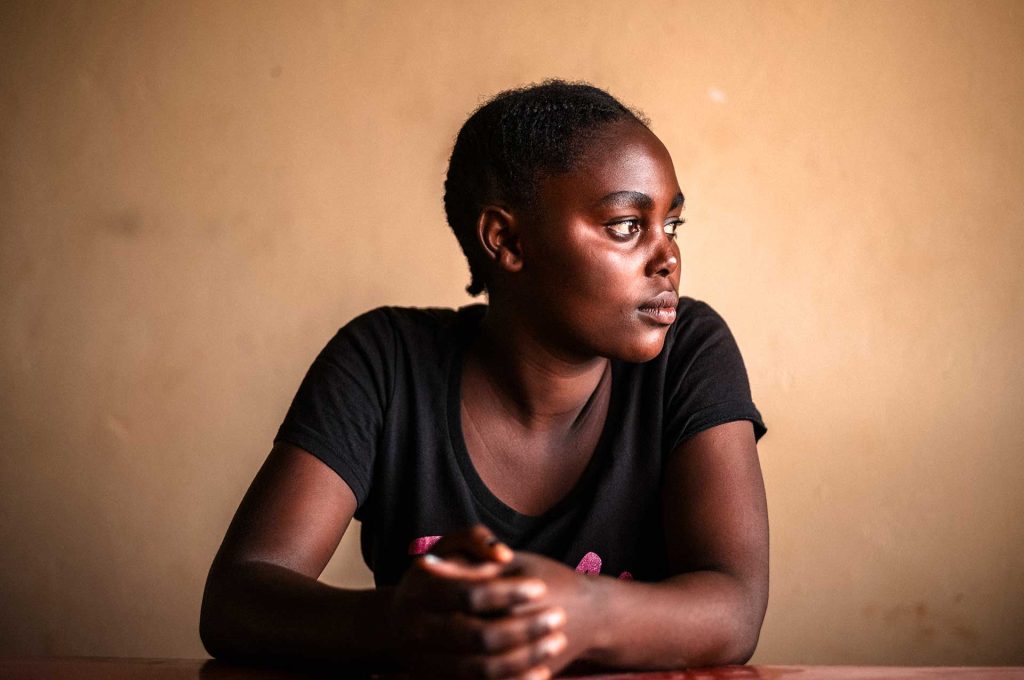
Reunited by social media
When looking west towards the DRC from Dorcas’ current home, the large Nakivale refugee settlement on the southern border of Uganda, it is hard to believe what natural riches lie between the two countries – and what human suffering they have caused on the other side of the border.
The DRC and its eastern neighbour, Uganda, are separated by Lake Edward, one of Africa’s major water bodies, and the rugged Virunga Mountains. The world also knows them as the ‘mountains in the mist’, thanks to the successful autobiographical book by the American ethologist Dian Fossey and the Hollywood film based on it.
Instead of wild nature, the gentle hills surrounding Dorcas’ home are mostly planted with cooking banana trees, i.e. matoke. Corn and bean fields have also been ploughed on the slopes, with long-horned Ankole cattle and goats strolling at a leisurely pace on the sides of the road formed in the reddish brown sand. Among the animals, there are people carrying banana bunches, water canisters and hoes.
Dorcas arrived from the eastern DRC to Uganda by a different route than the rest of her family. Thanks to smartphones and social media, the family members found each other soon after crossing the border into the refugee reception area.
“I had already thought that I would never see my parents again. I felt awful, but the employees of the UN Refugee Agency UNHCR assured me that there is hope.”
“I felt extremely happy to see them”, Dorcas says.
According to the UN Refugee Agency, Uganda offers refuge to 1.5 million refugees from the DRC and South Sudan. These figures make Uganda the largest refugee-receiving country in Africa and the fourth largest in the world.
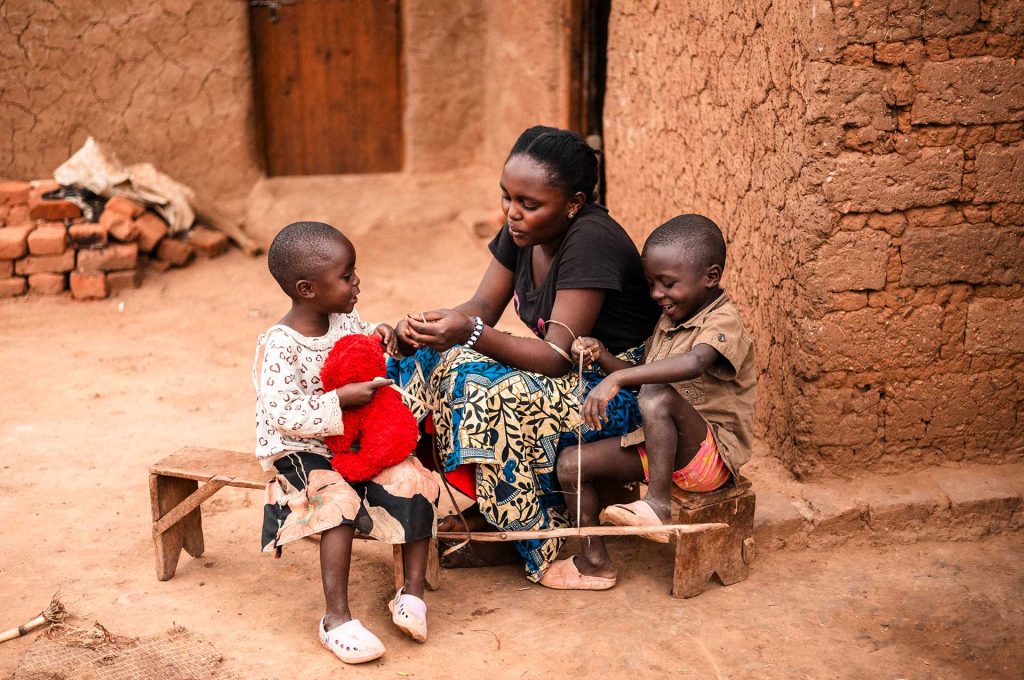
Dorcas’ family settled in Nakivale, the place where the resettlement of refugees in Uganda began. Originally established in 1958, it is the oldest refugee settlement in all of Africa. Over the past six decades, East and Central Africa has been battered by various natural disasters and conflicts, forcing millions of people to flee their homes.
In 2020, more than 170,000 refugees lived in Nakivale and the number of new arrivals is ever-growing. In addition to the DRC, they had arrived from Burundi, Rwanda, Somalia, Ethiopia and Eritrea. The settlement is in constant motion. Some have stayed for decades, others were born as refugees. Some have been lucky and have been able to return to their homeland.
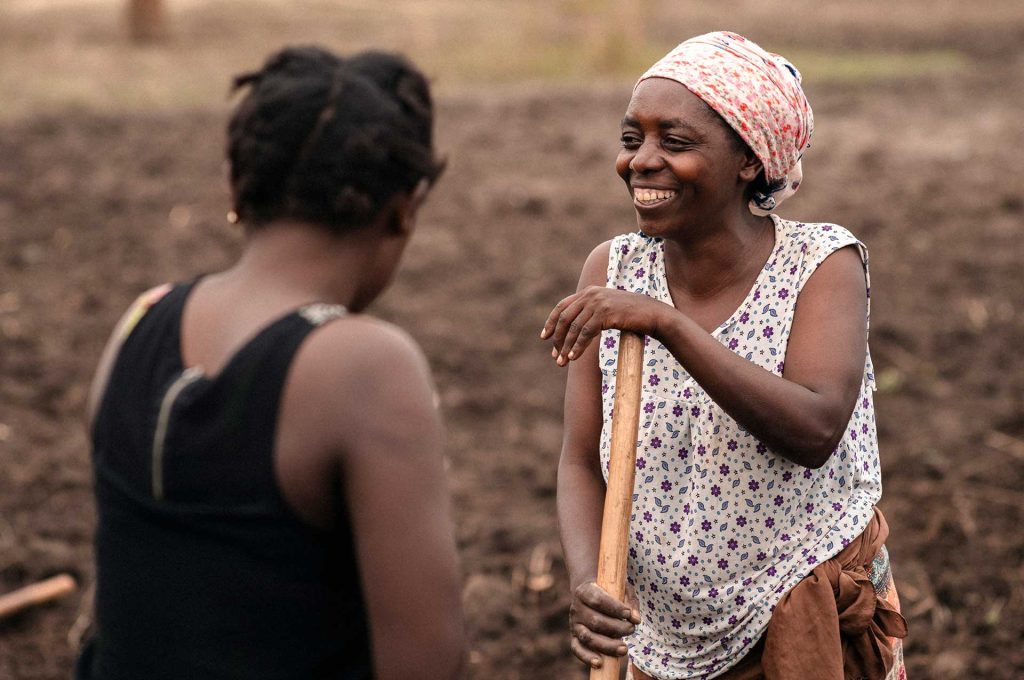
Dependency on food aid
Being a refugee has been a hard pill to swallow for the 17-year-old. Life is very different from what Dorcas is used to. Back home in the DRC, Dorcas’ father worked as a teacher and her mother cultivated the family’s own piece of land. Dorcas attended school and lived the life of a normal teenage girl, which included spending time with her friends.
“I miss my friends, but I don’t know where they are now. In the midst of war, everyone went their separate ways”, she says gravely.
Listening to Dorcas, it becomes clear how worried she is about the future. Most of the little money the family of eleven has is currently spent on food. Each member of the family receives both money and food, such as beans, cooking oil, salt and maize, through the World Food Programme (WFP), but the donations are not enough to cover all of their needs. In particular, they are not enough to keep the family’s children in school.
“We didn’t have such problems at home in the DRC. Here, our schooling is constantly at risk because we don’t have the money for the school fees”, she says.
In Uganda, it took Dorcas three months to be able to go to school.
“At that time, I was constantly thinking about where I could get the books and a school uniform and whether I would ever really be able to go back to school. I was very depressed”, she says.
Now, Dorcas goes to school most days. Dorcas received school supplies, a backpack and the encouragement she needed from Finn Church Aid. With support from its disaster fund, FCA has been working in the Nakivale refugee settlement to get children and young people back to school since 2022.
Dorcas’ family has barely enough money to pay for her schooling, but not for school meals. She often has to sit through afternoon lessons with her stomach rumbling with hunger.
School meals in Nakivale would cost 60,000 shillings per semester, which is equivalent to just under 15 euros. This money would buy a single lunch in downtown Helsinki in Finland, but it is a large sum for someone living as a refugee in Uganda.
Inflation has increased the price of food in Uganda as well. At the same time, large traditional aid organisations, such as the World Food Programme (WFP) and the Refugee Agency UNHCR, have had to drastically cut the aid they offer due to a lack of funding. The cash grant awarded by the WFP per person in the refugee areas of Uganda is 12,000 shillings, or about 2.90 euros, per month. The amount is well below the limit of extreme poverty of around two euros per day. Some of Dorcas’ family members receive support in the form of food products and some in cash.
The lack of funding is largely due to two things: Firstly, the fact that the world’s interest has been heavily focused on Ukraine, not Africa. At the same time, crises have greatly intensified in the region due to climate change and political instability, which has driven hundreds of thousands of new people to flee their homes, for example, in South Sudan, Somalia, Ethiopia and Sudan in addition to the DRC.
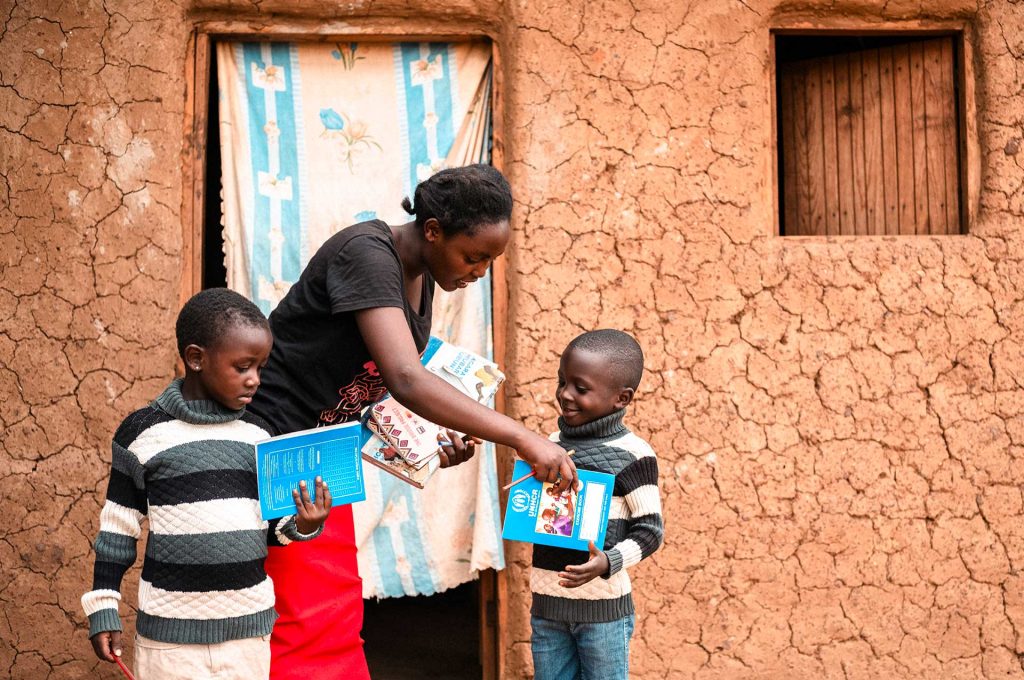
Language problem challenges learning
Rumbling stomach aside, there is also another factor that makes the school days of Dorcas and many other refugees more difficult.
“At home, we studied in Swahili and French. Here, the teachers only speak English. Due to my lack of language skills, I had to move a couple of years down in level.”
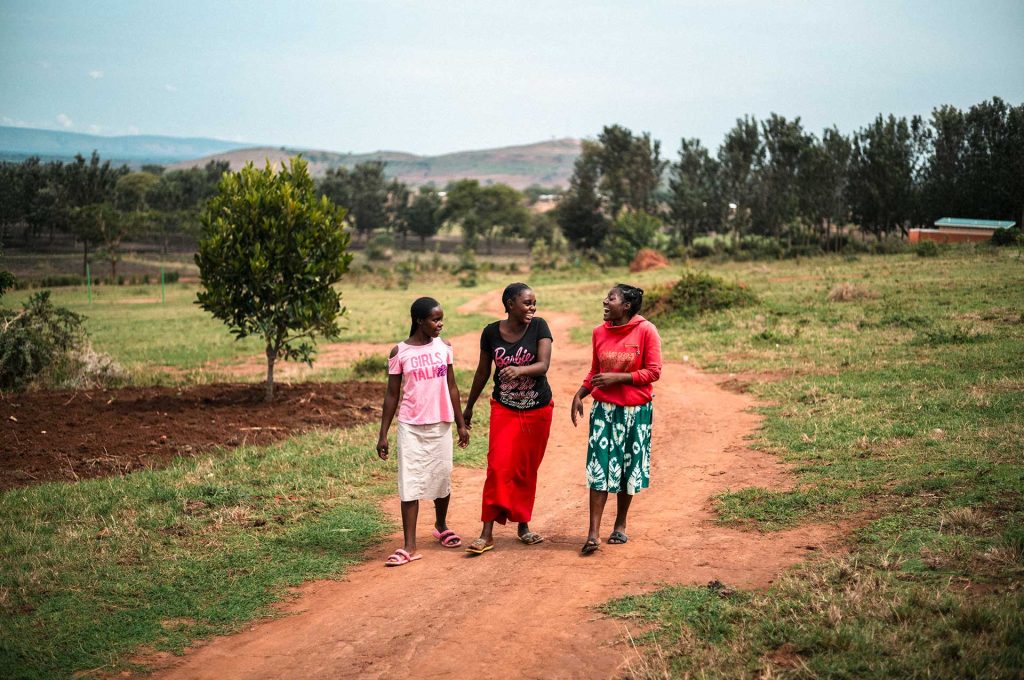
The language challenge gnaws at the girl’s mind, but the schools in the refugee areas follow Uganda’s official curriculum. It defines the language of instruction as English.
“At home, I was one of the best students in my class. I raised my hand often during lessons and understood everything. I felt smart”, she says.
In order to succeed at school, Dorcas has to study English. She is often frustrated by how difficult everything is.
“I didn’t understand anything during the first few days at school!”
Dorcas has learned the language little by little. She gets help from an English teacher working as a volunteer at the school who has also arrived from the DRC to Uganda as a refugee.
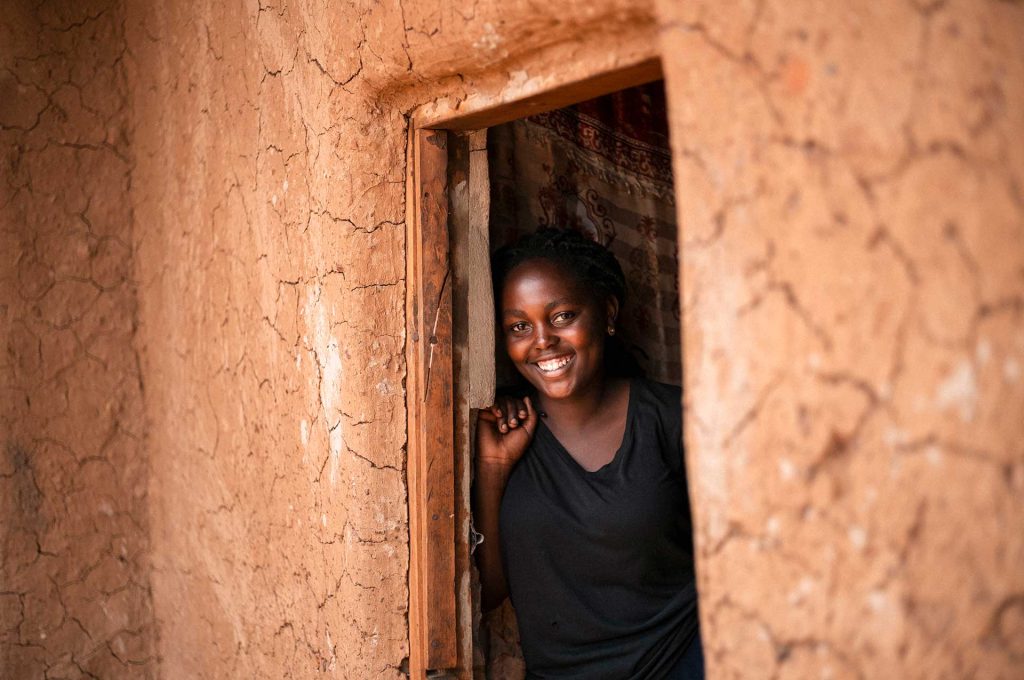
“Now, I know how to say hello and can at least greet the teacher in class”, says Dorcas, clearly downplaying her skills a bit. The young woman’s favourite subjects at school are especially mathematics and chemistry because she can get on in those by doing calculations.
In Nakivale, the refugees as well as the local children and young people attend the same school. Language unites refugees of different nationalities as well. Dorcas says that she also gets support from her new friends, whom she met as soon as she arrived in Uganda.
“We started getting to know each other because we share a common language”, she says.
One of Dorcas’ new friends is Neema Bizimana, 19, who, like Dorcas, has had to get used to a new life in a foreign country. The families of the teenage girls are now sharing a field in the refugee settlement, provided by the Ugandan government.
Dorcas and Neema are currently helping their parents plant beans in the field. The harvest is expected in three months. The girls hope that crops from their own field will put an end to the constant hunger.
Nevertheless, it seems that tiredness and worries are forgotten in the company of a friend. Taking a break, the girls giggle as they lean on their hoes.
“I have friends here who give me hope. They have good ideas and they also encourage me to stay in school, no matter what”, Dorcas says.
The article has been written as part of a 2024 Common Responsibility Campaign in Finland. The Common Responsibility Campaign is an annual fundraising campaign of the Finnish Lutheran Church. A share of campaign proceeds are channeled to the Finn Church Aid’s Disaster Fund, which enables the launch and implementation of emergency response to humanitarian disasters.
